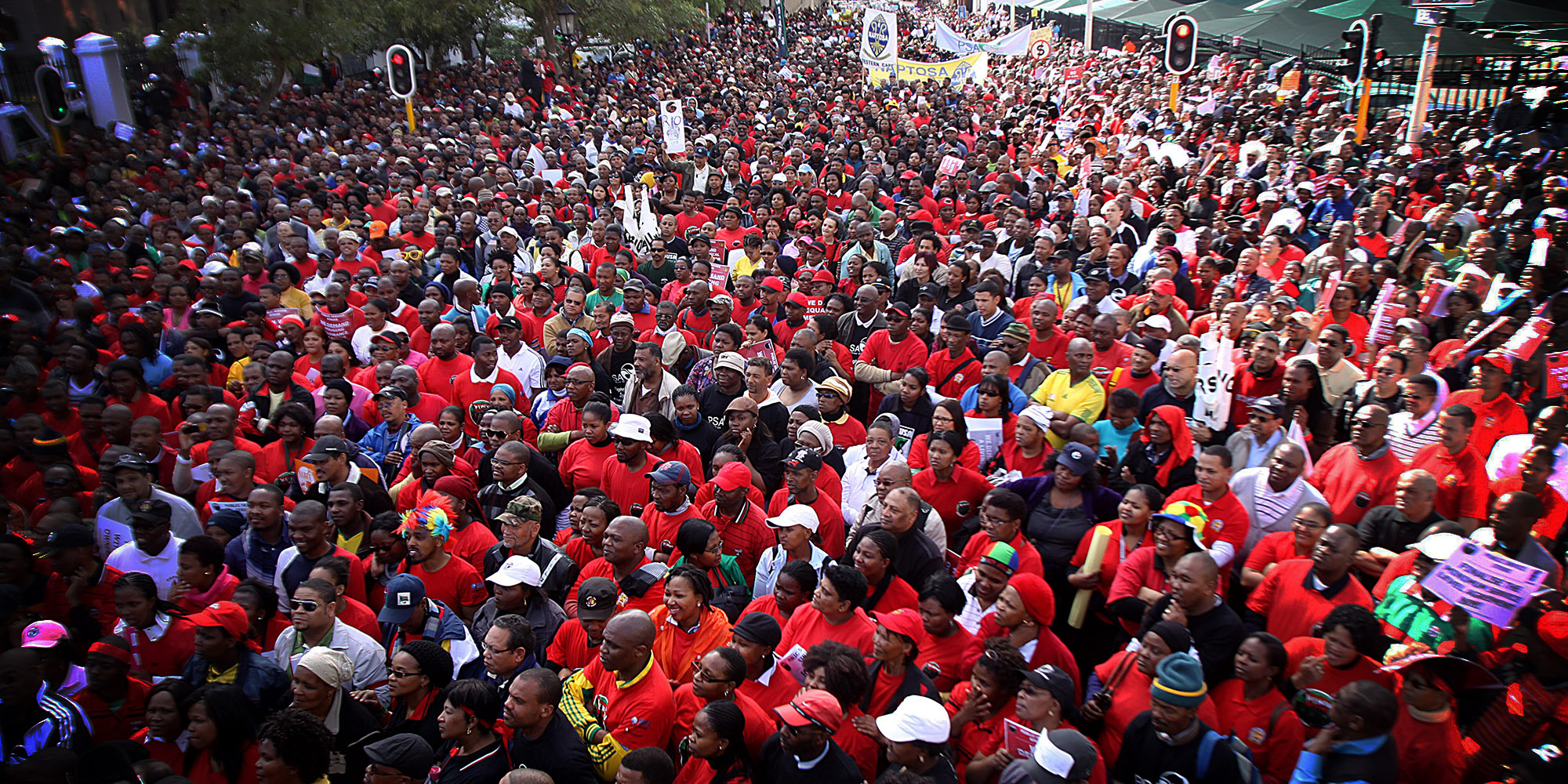At least one trade union is prepared to embark on a full-blown strike over wage increases for state workers — the first potential industrial action in the public sector in about 12 years.
The Public Servants Association (PSA), which claims to represent 235,000 government workers, has threatened industrial action from 10 November.
For now, though, the PSA and other trade unions are participating in lunchtime pickets to voice their disapproval of the government’s final offer of a 3% wage increase this year.
The government is not budging on the offer, even though unions are threatening to turn the pickets into indefinite strike action if they are not given an increase of at least 6.5%.
The PSA has been one of the first unions to reject the government’s 3%, paving the way for it to declare a dispute and issue a notice to the government about its strike plan.
Arguably, a strike by the PSA alone isn’t enough to cause major disruptions to public services considering that it represents 235,000 employees out of the 1.3 million who work across the various functions of the state.
Services offered at government departments including home affairs, employment and labour, transport and public schools would be affected by the PSA strike, as most of the union’s members work in these areas of the public sector.
Public servants considered to be providing essential services — including doctors and police officers — are usually prevented from participating in full-blown strikes. They would be restricted to lunchtime pickets.
Serious disruptions in the public sector might occur if other trade unions join the PSA in downing tools.
A major strike in the public sector last occurred in 2010, paralysing schools and hospitals for 20 days. The strike turned violent and police at state facilities in Gauteng and the Northern Cape fired tear gas, rubber bullets and water cannon.
To end that strike, trade unions eventually accepted a 7.5% pay rise and an R800 monthly housing allowance.
Conciliation process
Other public sector unions have not yet threatened strike action, preferring to continue negotiations through a process of conciliation.
The process is scheduled to continue on Tuesday at the Public Service Coordinating Bargaining Council, where unions and the government discuss conditions of employment in the public sector.
The unions that are understood to be participating in the conciliation process include the Police and Prisons Civil Rights Union (Popcru), the National Education, Health, and Allied Workers Union (Nehawu), the Health and Other Services Personnel Trade Union of South Africa (Hospersa) and the Democratic Nursing Organisation of South Africa (Denosa). In a coalition, the unions represent a large number of public servants.
The process to break the impasse over wage increases usually runs for 30 days. During this time, an independent mediator (usually one accredited by the CCMA) meets all parties in dispute to explore ways to end the impasse by agreement.
Popcru, Nehawu, Hospersa and Denosa could join the PSA strike after exhausting the conciliation process, which would allow them to issue the government with a formal notice of strike action.
The government used its powers to ram through a 3% wage deal, which also included a R1,000 monthly cash bonus for public servants, until the end of March 2023.
Visit Daily Maverick’s home page for more news, analysis and investigations
Employment and Labour Minister Thulas Nxesi did this by invoking section 5 of the Public Service Act, which empowers him to table and forge ahead with a final wage offer without consent from trade unions.
Nxesi’s move has angered unions as they hoped the government would still accommodate their demands for a percentage increase in wages that is either close to the consumer inflation rate (measured at 7.5% in September) or surpasses it.
Finance Minister Enoch Godongwana has already budgeted for a 3% increase for public servants for 2022, which will be backdated to April and implemented through the government payroll system.
This will cost the government about R690-billion to implement, which is the largest component of government spending.
During a Business Maverick webinar last week, Godongwana doubled down on the government’s final 3% offer, saying: “We have to close this matter once and for all.”
https://www.youtube.com/watch?v=x6NccKaZK0s&t=234s
Judging by the government’s determined attitude, it might prove difficult to break the impasse this time around and a strike cannot yet be ruled out. DM/BM
Business Maverick
Government firm on 3% public sector wage increase offer — strike remains possible





